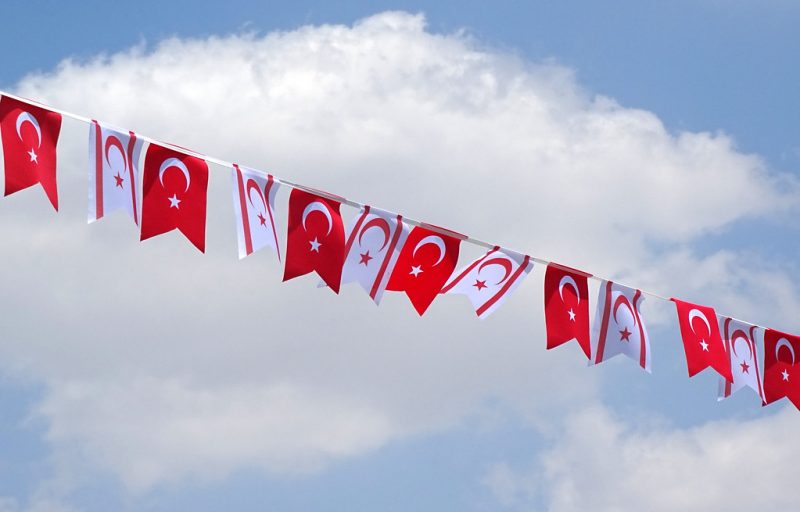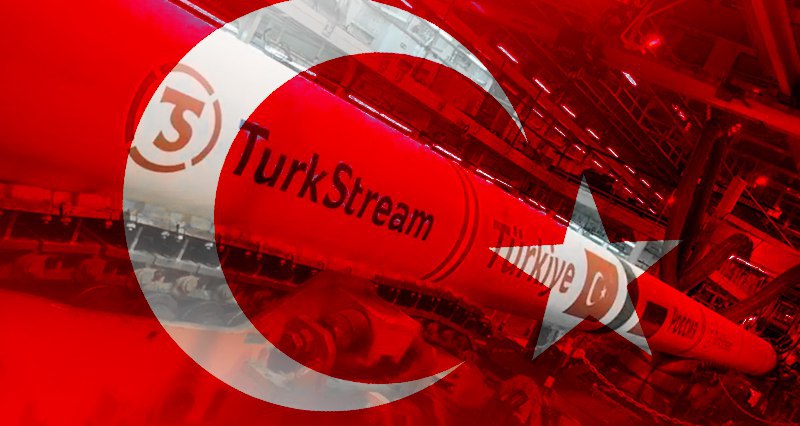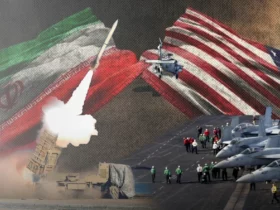The main cause of the dramatic shifts in the Eastern Mediterranean and Middle East
Interview with Assoc. Prof. Volkan Özdemir, Director of ATA Platform (www.ataplatform.org)
Tectonic changes in the international system have been taking place across the Middle East and this intense period of transition is showing no signs of slowing down. Thanks to shifts in economic wealth from the Atlantic to Pacific, one could argue that we are about to enter into what might be described as “the Age of Asia.” China has more or less already ended centuries of Western supremacy and has even developed a virtual monopoly on production capabilities including high level technical production. At the same time, this economic and technological success obviously has implications for international politics. We are witnessing the transformation of the international system, the move from a unipolar to a multipolar world order, from Western-centric to Multi-centric. The dynamics in regions across the world are being reconstructed according to new geopolitical realities, and Turkey’s geopolitical neighborhood is no exception.
On January 8, Erdogan and Putin opened the TurkStream pipeline project. What is the importance of this project in terms of geopolitics and energy?
TurkStream is one of the latest international Russian pipeline projects alongside the Power of Siberia and Nord Stream 2, all of which were developed to facilitate sending energy to Chinese, European and Turkish markets in order to diversify energy routes. Moscow’s main geopolitical motive in implementing massive energy projects such as Nord Stream 2 and TurkStream 2 is bypassing transit risks stemming from relying on routes through Ukraine.
[Video] President Erdogan: 'TurkStream is a historic project' https://t.co/PBm3lmhCdq
— Anadolu English (@anadoluagency) January 8, 2020
The project also provides Ankara with strategic leverage, as the project brings Turkey closer to Russia at a time when the former’s relations with the West are severely strained. Turkey feels threatened by US policies in the Middle East and Eastern Mediterranean and is looking for alternative ways to mitigate Western threats to its vital interests in the region. In that sense, the delivery of Russian S-400 defense missiles and the realization of TurkStream represent a new direction in the Turkish national security paradigm; geopolitically speaking, these projects benefit Turkey as well as Russia.
How do you assess the viability of the EastMed pipeline project which is designed to transport the region’s gas reserves to Europe?
Energy diplomacy is full of unrealized projects for various reasons. It’s highly likely that the EastMed gas pipeline project will end up the same. The Project agreement was signed with heavy political anxiety as an effort to overshadow Turkey’s recent delimitation agreement with Libya, and I think that even those countries which are parties to the agreement don’t believe in the project on an economic level. Let me briefly summarize the defects of the EastMed: First, there are still unsolved problems related to sharing energy fields in the region: various states are simultaneously claiming to have the rights to these gas reserves. Secondly, the viability of extracting gas from these fields at all is still in question. However, more importantly, even if there is enough gas to be tapped in the region, one should keep in mind that the cost of gas production in Eastern Mediterranean is quite high. Besides, there would be huge transportation costs to deliver the gas even to the nearest destinations such as Europe. Under current market conditions, gas from this region cannot compete with gas from other available sources.
That is why, for purely economic reasons, I cannot see why any rational European energy firm would want to invest in such a costly and politically problematic project. Therefore, my conclusion is that the EastMed Stream could more accurately be described as the EastMed dream– and as we know, dreams do not always come true.
What role do you think the Turkish Republic of North Cyprus (TRNC) can play for Turkey and Eurasia given the current energy rivalry in the Eastern Mediterranean?
Energy is a critical instrument in wider geopolitical calculations. Cyprus’ historical problem is being reproduced in issues related to energy production and consumption. Because the TRNC is situated at the heart of this geopolitical rivalry, the main motive for the Western powers is to eliminate the de facto state’s sovereignty. This would be a huge win for European Union and the United States, whose long term goal is to unify the island. There is an ongoing process of polarization in the region, and we are likely to observe more international initiatives to this end.

Flickr
The recently established Eastern Mediterranean Gas Forum is one concrete example of this. Some littoral states such as Greece, Italy, Greek Cypriots, Egypt and Israel are official members of this forum, while the United States has observatory status. On the other hand, Turkey is excluded from this international organization despite having the longest coastline in the Eastern Mediterranean. However, Turkey is not only one that is excluded. In addition to Turkey, Syria, Libya and Lebanon are also barred from participation.
Ankara can only thwart these efforts to isolate it with international solidarity. All isolated countries should come together to form another organization, namely an Eastern Mediterranean Energy Forum. Russia, and possibly China, could be invited to this organization and given observatory status. Under such a framework, the TRNC might also be recognized in the future. That would not only be an appropriate political response to the unfair policies of the West in the region, it would also be a step towards addressing the central trend in changing international system as it evolves from a unipolarity to multipolarity.
***
Volkan Özdemir: After graduating from Middle East Technical University, Ankara Volkan Özdemir got his master degree from universities of Upssala, Sweden on international studies and Ph.D degree from MGIMO, Russia on economics respectively. He worked for Turkish Prime Ministry Undersecreteriat for Foreign Trade and state energy company BOTAŞ. He has been in International Energy Charter as a senior fellow. With his Eppen company he provides consulting services and gives different lectures at various universities with a perspective of geopolitics. He is the founder and director of the ATA Platform.
In addition to his native Turkish, he is fluent in English and Russian. Assoc. Prof. Volkan Özdemir has numerous publications in different languages on geopolitical economy, security and energy affairs.

















Leave a Reply